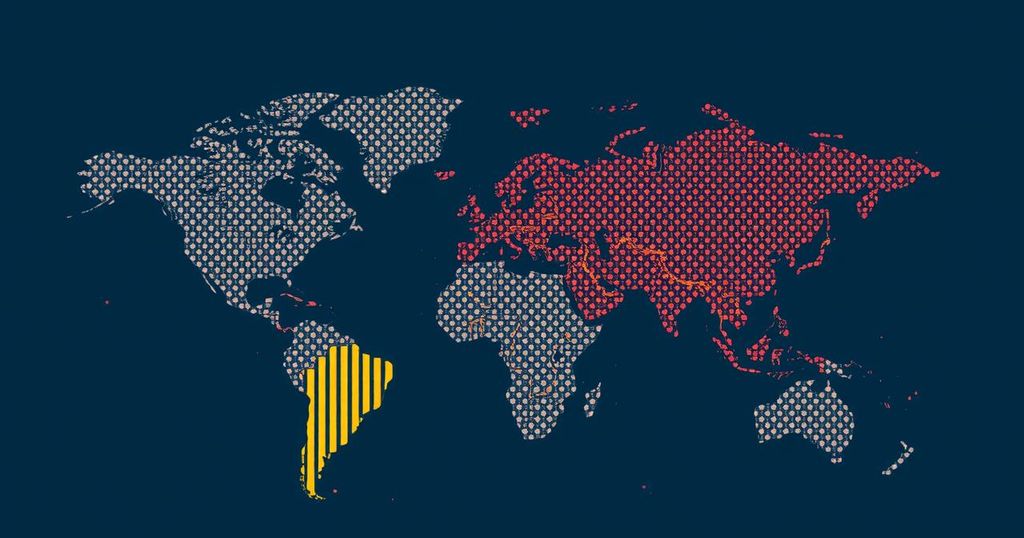The Impending Impact of Trump’s Presidency on Global Economic Dynamics

Donald Trump’s potential return to the presidency may drastically affect the global economy through proposed tariffs and protectionist policies. The U.S. continues to emphasize technological independence, compelling other nations to reduce reliance on American innovations. The continuation of subsidy races and tariff battles could impede international cooperation on critical issues like climate change and economic stability, necessitating adaptive strategies among global partners to foster resilience.
The imminent return of Donald Trump to the presidency could significantly alter the landscape of the global economy, particularly through his proposed policies regarding tariffs on imports to the United States. The U.S., known for its technological advancements and substantial investment in research and development, has created a scenario where other nations must mitigate their reliance on American innovations. Political strategies advocating for an ‘America first’ agenda, which transcend party lines, emphasize national interests over global collaboration. Trump’s previous presidency was characterized by an inclination towards protectionism, evident in his imposition of tariffs that elevated prices for American consumers while aiming to support domestic manufacturers. For instance, tariffs imposed on washing machines resulted in a 12% increase in costs for consumers. The current administration under President Biden has perpetuated this trend, raising tariffs on products such as electric vehicles and solar cells, indicating a continued effort to prioritize American manufacturing amid global competition. Meanwhile, China’s economy is facing substantial challenges due to this inward-focused U.S. policy, struggling with industrial overcapacity while trying to pivot towards stimulating domestic demand. Europe, on the other hand, is caught in a subsidy race, acutely aware of its budget limitations yet feeling compelled to match U.S. financial incentives to maintain competitive industries. The looming threat of tariffs and trade barriers could detract from collaborative global initiatives, such as addressing climate change or enhancing trade liberalization. The international community is tasked with reassessing its dependencies, particularly considering the urgency for sustainable energy solutions, including electrifying regions like Africa, which remain underserved. Moreover, the possibility of better trade relations with China could help alleviate some structural economic issues while fostering more balanced growth. Historic geopolitical conflicts, such as the invasion of Ukraine, have unveiled the complexities surrounding energy dependencies, particularly regarding European reliance on Russian gas, a subject Trump previously warned European leaders about. In the face of these intricacies, Europe must consider renegotiating tariff disputes with China to foster a more autonomous energy strategy. Given the potential shift in U.S. foreign policy under a Trump administration, characterized by continued isolationism, the onus lies on the rest of the world to forge independent paths toward cooperation and self-sufficiency. The anticipated presidency may reflect a continuation of the trend observed over the past decade. Thus, the global community must adapt, fostering inroads to strengthen international ties while embracing resilience amidst economic uncertainty.
The topic at hand examines the implications of Donald Trump’s potential return to the presidency and its effects on the global economy, particularly under his perceived protectionist policies. The analysis highlights the historical context of U.S. economic strategies, including the bipartisan ‘America first’ approach that has emphasized technological superiority and a reduced dependency on foreign trade. This approach, while aimed at bolstering domestic production, has triggered a series of tariff wars that impact global markets and relationships, particularly with nations like China and within the European Union. Additionally, it explores the repercussions of these policies on international cooperation, trade liberalization, and regional stability in the face of ongoing global challenges, such as climate change and geopolitical conflicts.
In summary, Donald Trump’s anticipated return to the presidency presents a complex scenario for the global economy, characterized by increased tariffs and protectionist measures that could deepen dependencies and hinder collaborative efforts. While the U.S. strives for technological independence, other nations must navigate the resulting challenges, potentially paving the way for independent energy strategies and trade relationships. The need for global cooperation remains paramount as the world confronts pressing issues, with or without U.S. leadership. The evolving dynamics necessitate a re-evaluation of international interdependence and a re-commitment to collaborative solutions in an increasingly fragmented geopolitical landscape.
Original Source: theconversation.com








